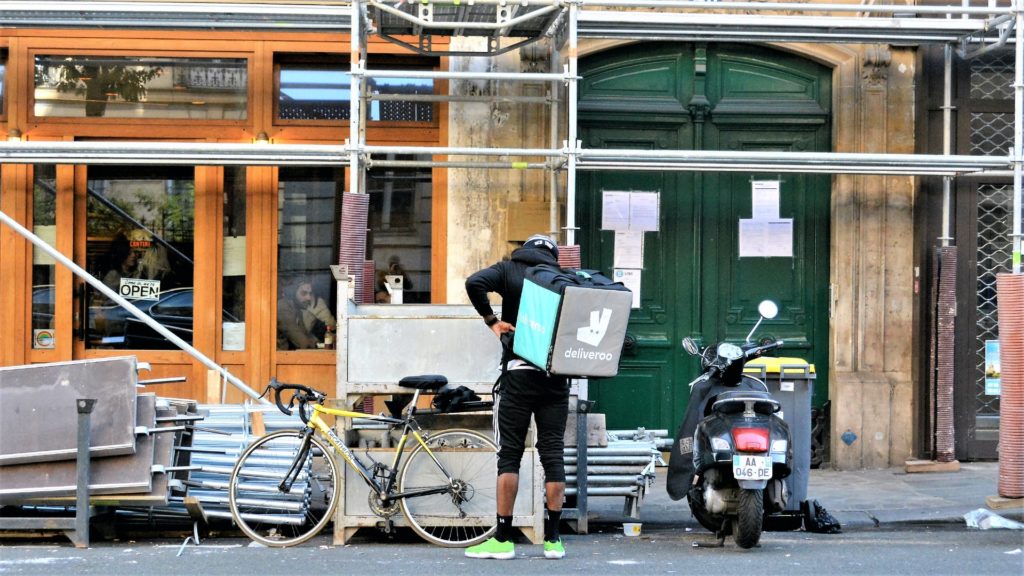The EU Parliament voted to approve a resolution demanding equal working conditions for platform workers, including a right to collective bargaining and for algorithms related to their work to be transparent, non-discriminatory and ethical.
Platform work refers to an employment form in which individuals use an online platform as an intermediary to performing work for clients, such as with Uber or Deliveroo.
An UberEats courier logs into the UberEats platform in order to see available jobs - in this case, orders for food delivery which they can fulfill for a payment, from which Uber deducts various fees. The payment and the amount of available jobs they see is dependent on algorithms within the platform, the workings of which are generally obscured from users.
“The members of the committee on employment and social affairs acknowledge that platform work can create employment opportunities and lower barriers for entering the labour market, but raise concern about poor working conditions and bogus self-employment,” reads a press release.
“People working for digital labour platforms should have the same rights and the same access to social protection as other workers.”
MEPs have called for a directive to guarantee these rights and address some of the specificities of gig-work, adding that while genuinely self-employed people can remain self-employed, it should never be at the cost of social protection.
Platform work has been on the rise as companies like US-based Uber and UK-based Deliveroo expand into Europe.
The people who deliver food with UberEats or Deliveroo, or offer ride-sharing services with Uber, do not work directly for the companies as employees, but are instead classified as self-employed contractors - a designation that affects taxation, working hours, and overtime benefits, which opponents say is out of step with progressive European employment practices.
Brussels in particular has fought to keep Uber at bay in the Belgian capital, invoking laws against using a smartphone while driving in an effort to effectively ban the platform (whose business model they see as fundamentally unethical) from operating.
They needn’t search hard for examples of how the lack of social rights for gig workers can have dire consequences for the workers and their families, especially during the coronavirus pandemic.
A special coronavirus fund set up by Uber to help workers affected by the global pandemic (insurances which union leaders have decried as little more than a publicity stunt) paid a Brussels courier just €6 a day for 11 days of lost wages when he was forced to quarantine after his wife tested positive for Covid-19.
Indeed, the pandemic was cited by MEPS in their demand for equal working conditions for these workers.
“Since platform workers are often subject to increased health and safety risks, all on-location platform workers need to be equipped with adequate personal protective equipment and those active in transportation and delivery need to have guaranteed accident insurance,” they said in their press release.
They also said that platform workers should be entitled to transparent, non-discriminatory and ethical algorithms that have human oversight, and that decisions regarding them must be ethical, accountable, contestable and where relevant reversible.
“The adoption of this report by a vast majority is a very good signal for platform workers,” said rapporteur Sylvie Brunet (Renew, FR).
“We must constantly strive for the necessary balance between opportunities and flexibility offered by the new forms of employment linked to digital development and the protection inherent to our European social model.”
MEPS also emphasised that the right to collective bargaining and freedom of association are fundamental rights for all workers, and that a directive must ensure these rights can be exercised.
They also called for the establishment of a European quality label that highlights platforms with quality labour conditions, in order for users, workers and consumers to make informed decisions about the platforms they use or work for.
The resolution was adopted by 44 votes to 2 and 8 abstentions.

